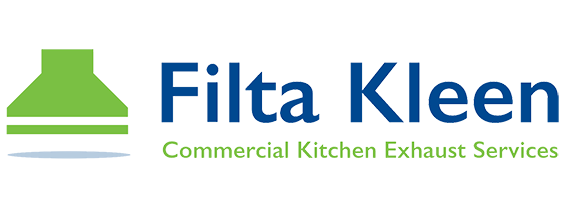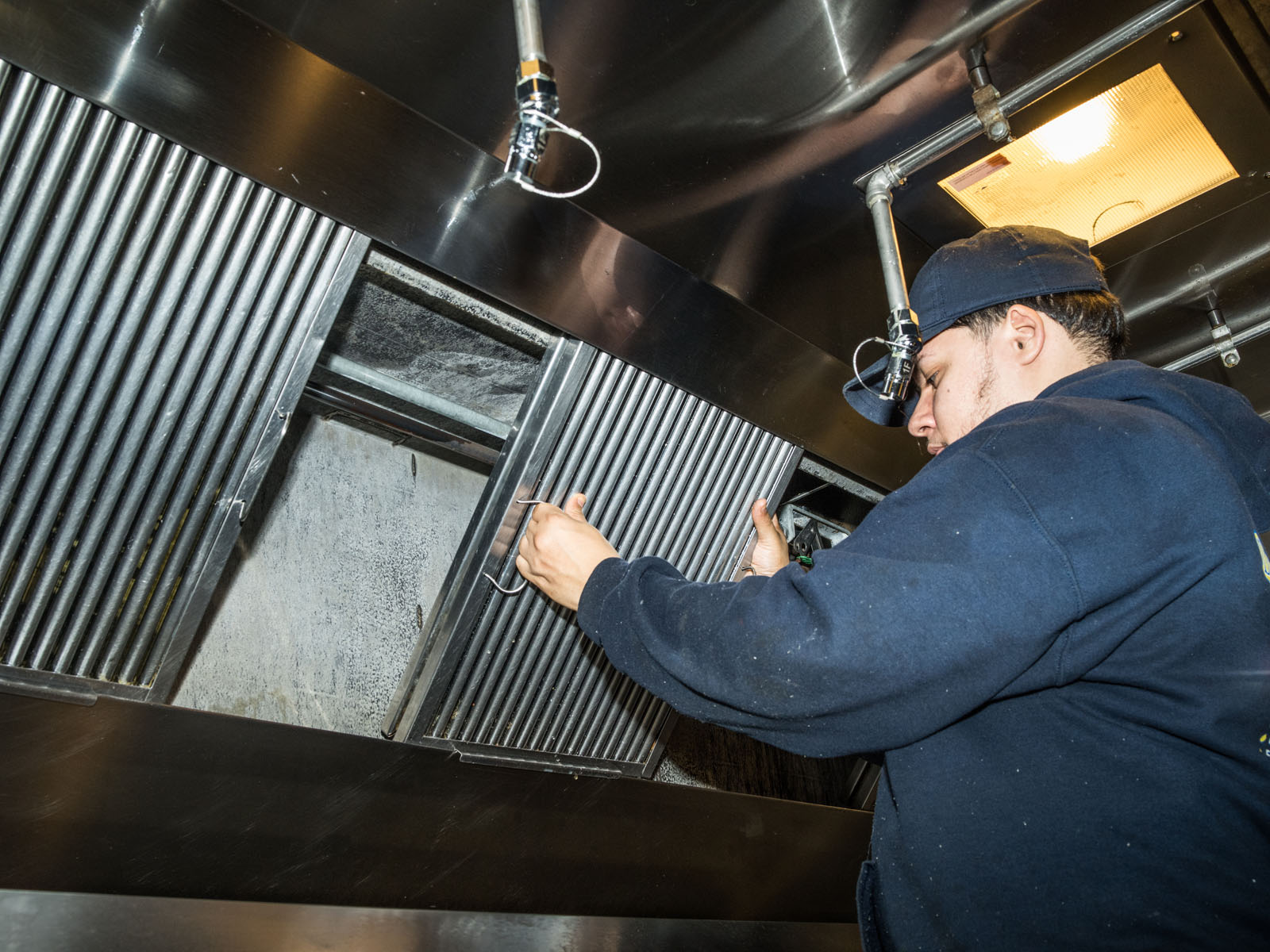Why It’s Important to Fully Understand Restaurant Exhaust Inspections in NYC
Restaurant kitchens are high-heat, high-grease environments where exhaust systems play a critical role in safety and compliance. Over time, grease builds up in ventilation systems, creating a serious fire hazard. Without regular inspections and maintenance, this hidden risk can lead to costly fines, equipment failure, and even catastrophic fires.
Why Restaurant Exhaust Inspections Are Essential
The exhaust system is the backbone of a commercial kitchen’s ventilation, responsible for removing smoke, heat, and airborne grease particles. Over time, grease deposits accumulate, creating a highly flammable environment. Routine inspections and maintenance are the only way to ensure these risks are mitigated.
Regulatory agencies like the FDNY and the NFPA 96 mandate regular inspections and cleaning to prevent grease fires and maintain compliance. Ignoring these requirements can lead to substantial fines—or worse, a fire that could shut down your business. NYC restaurants must also adhere to additional regulations from the Department of Environmental Protection (DEP), the Department of Buildings (DOB), and the Bureau of Fire Prevention, ensuring that all components of the exhaust system function properly and meet code requirements.
Key Components of an Exhaust System Inspection
A thorough exhaust inspection isn’t just a cursory glance inside the hood; it involves an in-depth review of multiple critical components:
- Hood Filters: These are the first line of defense in trapping grease particles. Missing or clogged baffle filters compromise airflow and increase fire risk. Inspectors ensure filters are properly installed and functioning.
- Ductwork: The ducts transport grease-laden vapors away from the cooking area. Inspections check for blockages, leaks, and excessive grease accumulation, which can lead to airflow restrictions and increase fire risks.
- Exhaust Fans: A properly functioning fan is essential for adequate ventilation. Inspectors assess motor function, belts, and grease buildup, ensuring the fan is operating efficiently to remove heat and contaminants.
- Fire Suppression Systems: Nozzles and extinguishing agents must be checked to ensure they are properly positioned and operational in the event of a fire. Fire suppression systems should be inspected semi-annually to meet FDNY and NFPA 96 compliance.
- Grease Traps & Catchment Boxes: Overflowing grease traps contribute to sanitation issues and increase the likelihood of fire hazards. These must be cleaned regularly to prevent blockages and overflows.
The Role of Certified Inspectors
Certified professionals are trained to identify potential fire hazards, mechanical malfunctions, and compliance violations. Unlike general maintenance staff, trained inspectors follow NFPA and FDNY guidelines, ensuring your restaurant is protected from regulatory fines and safety risks. Their inspections cover:
- Identifying missing baffles, clogged filters, or malfunctioning fire suppression systems
- Checking ventilation controls to ensure proper airflow
- Assessing water wash systems for grease-laden hoods
- Inspecting pipe fittings and exhaust fans for wear and tear
- Ensuring all exhaust system components meet NYC-specific requirements
Types of Commercial Kitchen Exhaust Systems
Understanding the type of exhaust hood in your kitchen is essential for proper maintenance:
- Type I Hoods: Designed for grease-producing appliances (e.g., deep fryers, grills, and open-flame stoves), these hoods require frequent cleaning and maintenance to prevent grease buildup. These systems must have fire suppression mechanisms in place.
- Type II Hoods: Used for non-grease-producing appliances (e.g., dishwashers, pizza ovens), these hoods help control heat and moisture rather than grease removal. While they require less maintenance, neglecting them can lead to ventilation inefficiencies and potential violations.
Best Practices for Exhaust System Maintenance
- Regular Restaurant Hood Cleaning Schedules: Implement a structured cleaning routine based on cooking volume and NFPA guidelines. High-volume kitchens require monthly or even bi-weekly cleanings, while lower-use kitchens may need quarterly maintenance.
- Professional Restaurant Exhaust Repairs and Servicing: Relying solely on kitchen staff is insufficient—certified professionals should conduct periodic deep cleans to ensure compliance and remove hidden grease buildup in hard-to-reach areas.
- Staff Training: Educate employees on proper storage methods, filter maintenance, and early warning signs of system failure. Employees should understand how to visually check grease traps, hoods, and exhaust fans for warning signs of excessive buildup.
The Consequences of Neglecting Exhaust Inspections
Failing to maintain your kitchen exhaust system can have serious repercussions:
- Fire Hazards: Grease accumulation is the leading cause of restaurant fires. Regular inspections drastically reduce this risk by ensuring all components are clean and functional.
- Regulatory Penalties: Non-compliance with FDNY, NFPA, and other local regulations can result in costly fines and forced closures. Failure to comply with inspections may also result in violation notices from the DEP, DOB, and Fire Department.
- Higher Insurance Costs: Many insurers refuse to cover fire damage for establishments with a history of poor maintenance. A well-maintained system can reduce premiums and liability risks.
- Poor Air Quality & Unsafe Conditions: Inefficient ventilation creates an uncomfortable and hazardous working environment for staff, leading to potential health issues and decreased productivity.
Creating an Effective Inspection Checklist
To keep your restaurant safe and compliant, ensure the following areas are regularly inspected:
✔ Exhaust hood cleanliness and condition ✔ Properly installed and cleaned filters ✔ Functionality of exhaust fans and ventilation control systems ✔ Fire suppression system readiness, including nozzle placement and extinguishing agents ✔ Grease trap maintenance and waste removal schedules ✔ Secure, undamaged ductwork with no excessive grease buildup or obstructions ✔ Nozzle accessibility and protective cap placement ✔ Compliance with FDNY, NFPA 96, DEP, DOB, and Bureau of Fire Prevention regulations
Final Thoughts
Restaurant exhaust inspections are non-negotiable for any food establishment prioritizing safety, compliance, and efficiency. Regular inspections, combined with certified professional servicing, ensure fire risks are minimized, air quality is optimized, and regulatory fines are avoided. Investing in proactive maintenance not only protects your business but also provides a safer work environment for your team.
By taking a strategic approach to exhaust system care, you can focus on what truly matters—serving great food while maintaining a secure and compliant kitchen. Following NYC-specific regulations ensures that your restaurant meets all safety standards and avoids penalties that could impact operations. Prioritizing maintenance now will save time, money, and headaches in the future.


